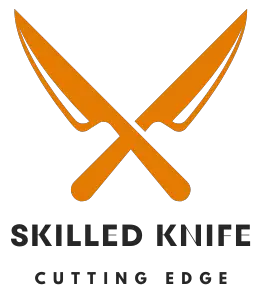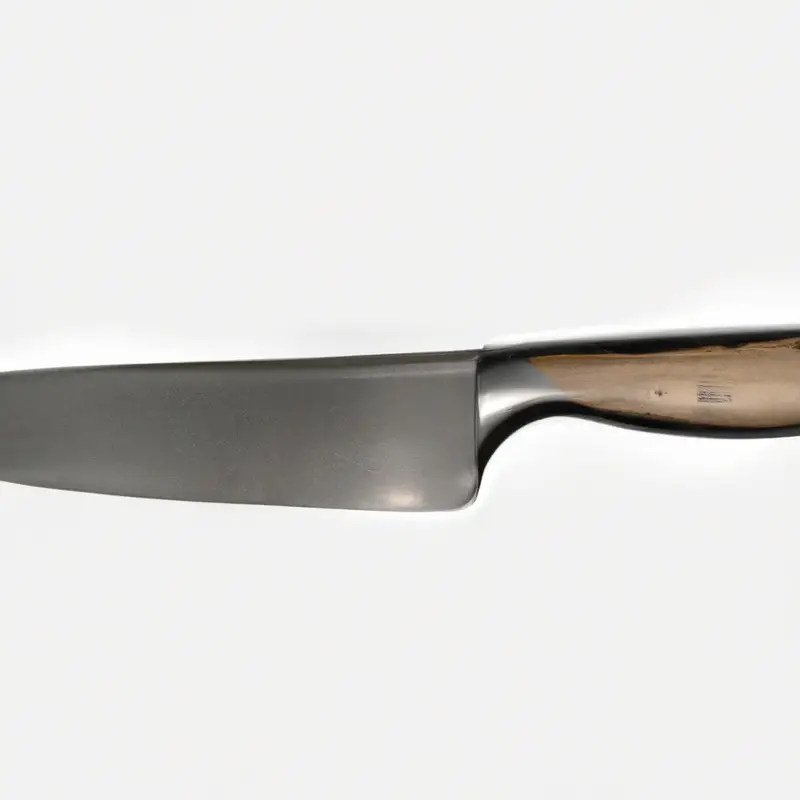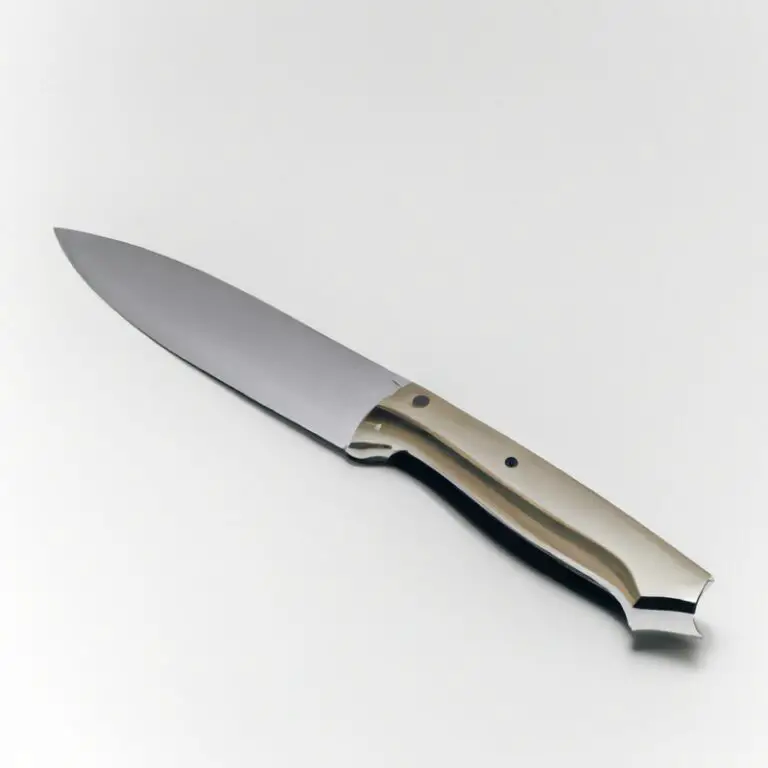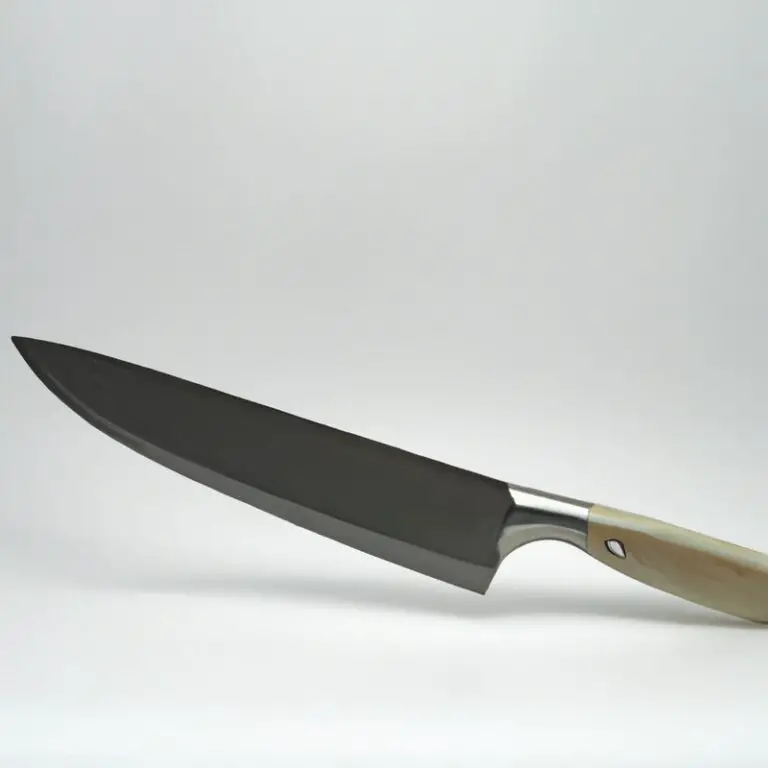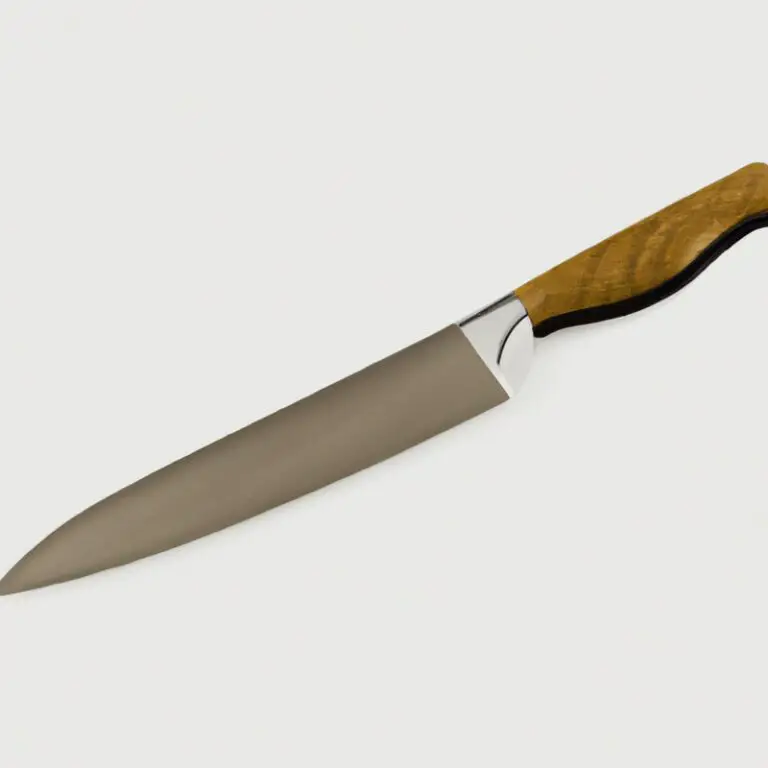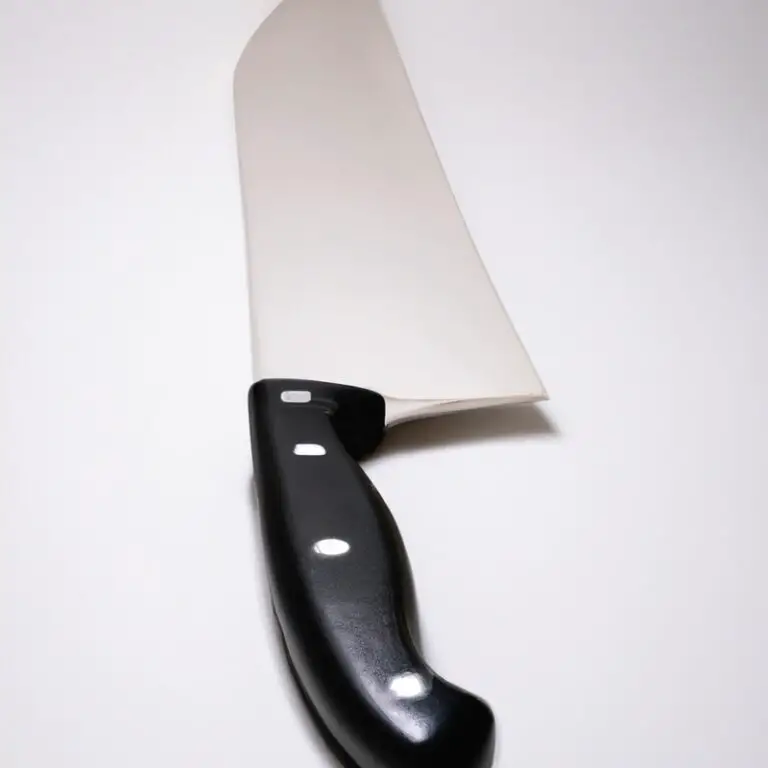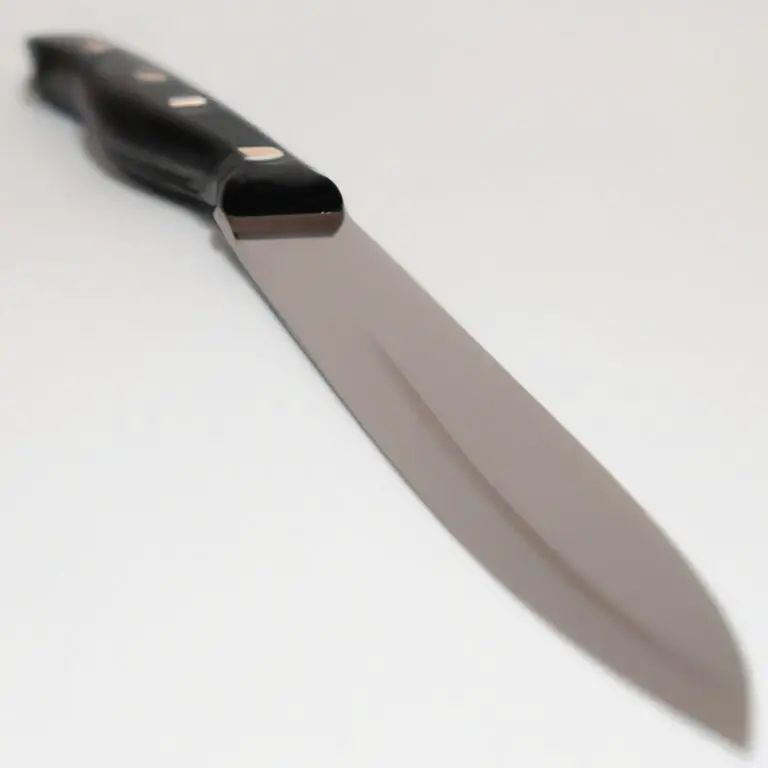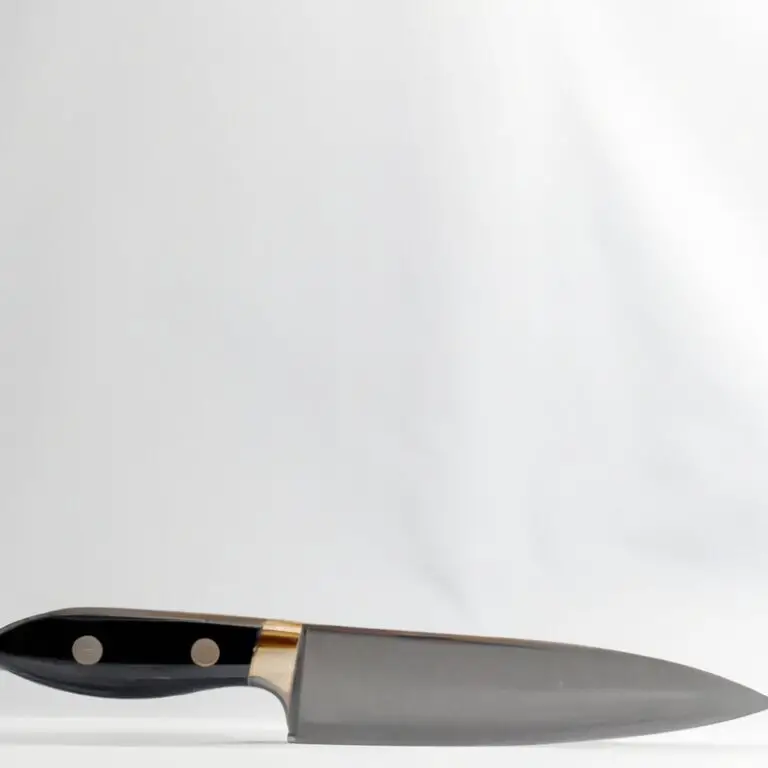What Is The Ideal Weight For a Chef Knife?
Key Takeaways:
- The ideal weight for a chef knife depends on personal preference and intended use.
- Heavier chef knives are better for chopping while lighter ones are more suitable for precision tasks.
- A well-balanced chef knife is crucial to prevent fatigue and ensure comfort during use.
- Ultimately, the perfect weight for a chef knife is subjective and can vary based on the individual’s expertise and comfort level.
As a chef, one of the most important tools in your arsenal is the chef knife. But have you ever wondered about its ideal weight?
A well-balanced chef knife can make all the difference in your cooking, but finding the right weight can be overwhelming.
In this article, we’ll explore the key features of high-quality chef knives and why weight matters. We’ll also debunk the myth of heavier knives and discuss how to choose the right weight for different cutting techniques.
Whether you’re a professional chef or a home cook, this guide will help you find the perfect balance for your personal preferences and cooking style.
| Size (inches) | Ideal Weight (ounces) |
|---|---|
| 6 | 4-6 |
| 8 | 7-10 |
| 10 | 10-12 |
| 12+ | 12-16 |
Understanding the Anatomy of a Chef Knife: Key Features to Look for in a High-Quality Knife
A high-quality chef knife has several key features that distinguish it from other knives. The blade should have a sharp edge that is easy to maintain, a sturdy handle that provides a comfortable grip, and a balanced weight distribution.
The tang, the part of the blade that extends into the handle, should be full for added strength and durability.
Additionally, high-quality chef knives are made with high-quality materials, such as stainless steel or carbon steel, for maximum performance and longevity. By understanding the anatomy of a chef knife and these key features, you can ensure that you choose the best knife for your needs.
Why Weight Matters in Chef Knives: The Importance of Finding the Right Balance
Weight matters in chef knives because it affects the knife’s performance and your comfort while using it. A knife that is too heavy may cause fatigue and strain, while a knife that is too light may not have enough cutting power.
When choosing a chef knife, finding the right balance is crucial.
The balance point is where the handle meets the blade, and it should be centered for optimum control and comfort. Additionally, the weight distribution should be equal on both sides to prevent any twisting or wobbling during cutting.
Consider your cutting techniques and personal preferences when selecting the weight of your chef knife.
The Ideal Weight for Different Cutting Techniques, from Chopping to Slicing
The ideal weight for a chef knife varies depending on the cutting technique. A heavier weight is best for more robust tasks such as chopping, while a lighter weight is better for precise tasks like slicing.
The weight of the knife affects the balance and control.
Generally, a chef knife should weigh between 6-12 ounces. However, the ideal weight for a chef knife is subjective and varies from person to person.
It’s essential to experiment with different weights to find what works best for you.
Ultimately, the ideal weight for a chef knife is one that feels comfortable and efficient to use for the cutting technique required.
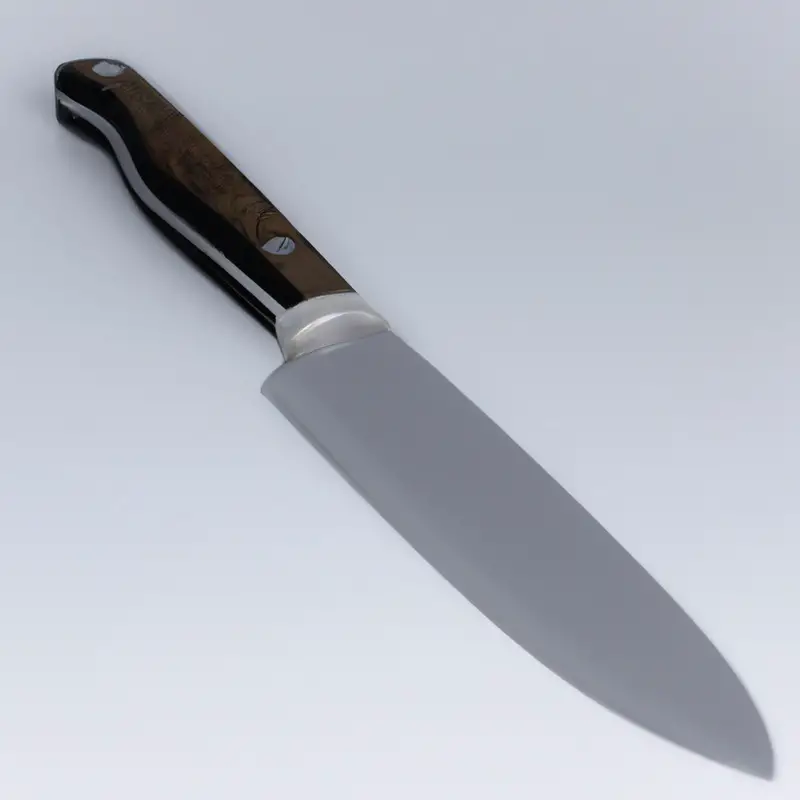
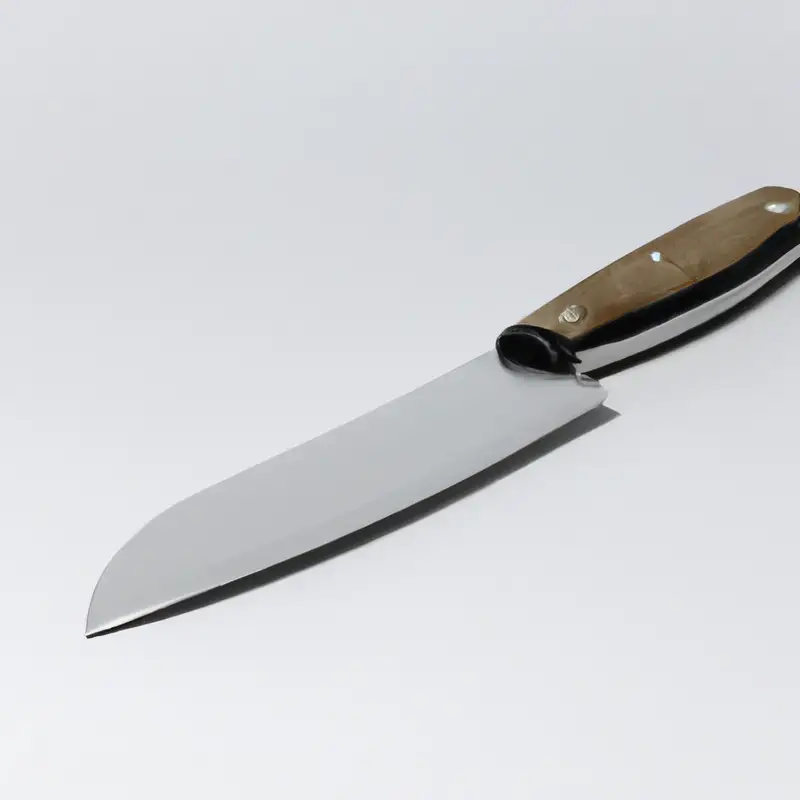
Debunking the Myth of Heavier Knives: How Lighter Knives Can be Just as Effective
Contrary to popular belief, heavier knives are not necessarily better for cutting. In fact, lighter knives can be just as effective and even more versatile.
Lighter knives, such as Japanese knives, have a sharper edge and can make precise cuts with ease.
They also minimize the risk of hand fatigue and are easier to handle. The key to choosing the right knife weight depends on personal preferences and usage habits.
It is best to try out different weights and styles to find the perfect fit for your needs.
Finding the Perfect Balance for Your Personal Preferences and Cooking Style
When choosing a chef knife, it’s crucial to find the right balance for your unique cooking style and preferences. A knife that feels comfortable in one person’s hand may feel awkward to another.
To find the perfect balance, consider factors like the weight, handle shape, and blade length.
If you prefer a lightweight knife, opt for a blade around 6-8 inches in length made with a thinner steel. For those who prefer a heavier knife, go for a blade around 8-10 inches in length with a thicker steel.
However, keep in mind that a knife that is too heavy or too light may cause fatigue or discomfort.
Consider the tasks you perform frequently when cooking, such as chopping, slicing, or dicing, and choose a knife that feels comfortable with those tasks. If you have smaller hands, consider choosing a knife with a smaller grip size for better control.
Ultimately, finding the perfect balance for your personal preferences and cooking style comes down to experimenting with different knives.
Try holding and using different knives to find the one that feels most natural in your hand. Don’t be afraid to invest in a higher quality knife that will last longer and perform better for your specific needs.
The Impact of Material and Design on Knife Weight: Stainless Steel vs. Carbon Steel Blades
The material and design of a knife’s blade significantly impact its weight. Stainless steel blades are typically heavier because they are denser, while carbon steel blades are lighter due to their makeup.
The shape and thickness of the blade can also affect weight.
A thicker blade will typically weigh more than a thinner blade of the same length and material. Ultimately, the weight of a knife should be chosen based on personal preference and the specific tasks it will be used for.
How to Choose the Right Weight for Different Tasks: Boning, Filleting, and More
Different cutting tasks require different knife weights. For precise tasks like filleting or deboning, look for lighter knives with thinner blades and tapered tips.
A weight range of 5-7 ounces is ideal for these tasks.
However, heavier knives are better suited for chopping and cutting through dense ingredients like meat or root vegetables. A weight range of 7-10 ounces should suffice for these tasks.
It’s important to choose a knife weight based on the task at hand to maximize efficiency and control.
Considerations for Non-Traditional Uses of Chef Knives, such as Barbecuing or Camping
When considering non-traditional uses of chef knives, such as barbecuing or camping, it is important to keep in mind the specific tasks that these activities entail. For barbecuing, a larger chef knife with a heavy blade may be more appropriate for tasks such as butchering and trimming meat.
However, for more delicate tasks like slicing, a lighter knife with a thinner blade may be more effective.
For camping, a smaller, lightweight chef knife with a sturdy handle may be ideal for tasks such as preparing food and cutting rope or branches. It is important to choose a knife that is both durable and versatile for non-traditional uses, as these activities may require the knife to withstand more wear and tear than typical cooking tasks.
Balancing Quality and Affordability: Top Picks for Different Budgets and Weight Preferences
When it comes to balancing quality and affordability, there are a variety of options available for different budgets and weight preferences. For those on a tight budget, there are high-quality stainless steel knives that are durable and sturdy but don’t break the bank.
For those who prefer a heavier knife, there are options with thicker blades that offer more weight and balance.
However, lightweight knives are also popular, and can often be just as effective. Some top picks for affordable and quality knives include the Victorinox Fibrox Pro and the Mercer Culinary Millennia.
Both of these options have earned high ratings for their durability and value.
For those who prefer a heavier knife, the Wusthof Classic 8-inch Chef’s Knife and the Henckels International Classic 8-inch Chef’s Knife are both popular choices. Regardless of budget or weight preference, it’s important to prioritize quality and durability when selecting a chef knife.
A high-quality knife will last longer and provide better results, even if it comes with a higher price tag.
When shopping, consider the materials used for the blade and handle, as well as reviews from other customers to ensure you’re making an informed decision.
Proper Maintenance and Care for Your Chef Knife to Keep it in Optimal Condition
Proper maintenance and care for your chef knife is crucial to keep it in optimal condition and maintain its sharpened edge. Here are some tips for taking care of your knife:
- Wash your knife by hand with warm, soapy water and dry it immediately to prevent rust.
- Avoid using a dishwasher, as it can damage the blade’s edge and handle.
- Sharpen your knife regularly to maintain its sharpness.
- Store your knife in a knife block, sheath, or magnetic holder to prevent damage to the blade or anyone who may come in contact with it.
- Use a honing steel to straighten the edge of the blade before each use.
By following these simple steps, you can ensure that your chef knife stays in top shape and lasts for years to come.
Final Verdict
Choosing the ideal weight for your chef knife can greatly impact your cooking performance and overall experience. While some may argue for heavier knives, it is important to consider the balance and personal preference for different cutting techniques.
Remember to prioritize the material and design of the knife, as well as the maintenance and care to ensure longevity.
By taking the time to find the right fit, you can elevate your skills and precision in the kitchen. As a trusted source in culinary expertise, we stand behind the information presented to help guide you towards the perfect chef knife for your needs.
